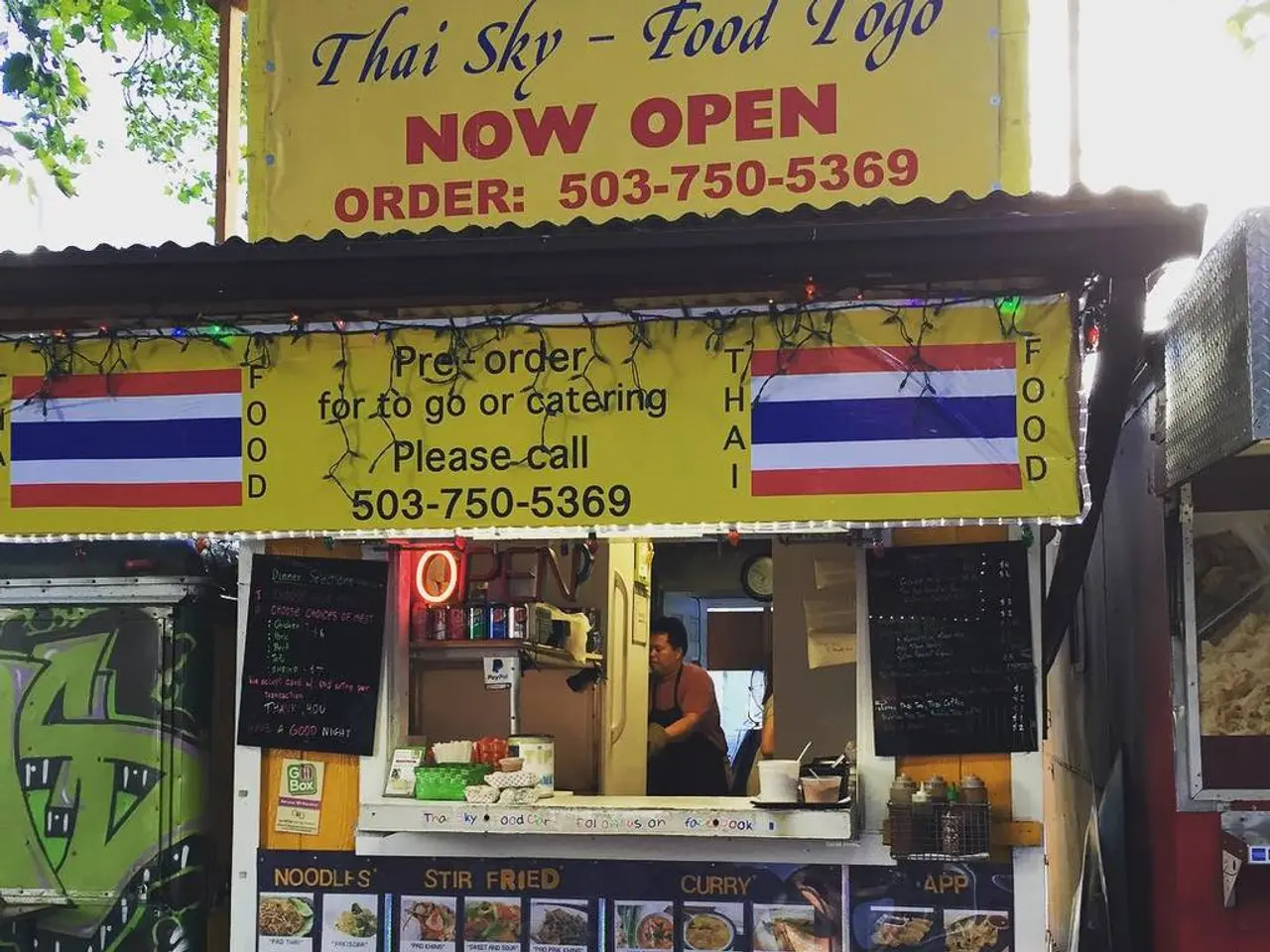U.S. tariffs take a toll on Lesotho's garment workers, leaving them in a desperate state
In the heart of southern Africa, the tiny mountain kingdom of Lesotho is grappling with a crisis in its garment industry. With around 35,000 garment workers employed across the nation, the sector has been hit hard by the tariffs imposed by U.S. President Donald Trump in April 2025.
The tariffs, initially threatened at 50%, were eventually reduced to 15%, but this has still left Lesotho at a competitive disadvantage. Factories like Tzicc, which employs 1,300 workers, have had to send most of their staff home due to dwindling business[1][4][5]. The industry as a whole has seen massive layoffs, with an estimated 12,000 garment workers losing their jobs[1][4][5].
The ripple effects of these job losses are far-reaching. Approximately 40,000 people connected indirectly to the garment sector—such as cobblers, taxi drivers, and small local businesses—are also affected by the downturn[2].
The garment industry is Lesotho's biggest private-sector employer. Many factories rely on exports under the African Growth and Opportunity Act (AGOA), which if not renewed could end the garment sector in Lesotho[3]. Lesotho's Trade Minister Mokhethi Shelile has stated that AGOA has effectively been scrapped with the tariffs imposed by the U.S.[4].
The government has declared a "state of disaster" to expedite the creation of alternative jobs, but with ongoing layoffs and no new orders, the industry is rapidly deteriorating[5]. The tariffs remain higher compared to competitors, exacerbating market loss despite the reduced tariff rate[1].
Workers like Mpolai Sementhe, a worker at the Levi's factory, have never owned a pair of jeans despite sewing them for years. A Taiwanese manager at a factory in Maseru is worried about the future of the industry due to the tariffs. Maboitumelo Ramakatane, a worker at Precious Garments, produces Trump-branded golf shirts and is worried about the potential closure of the factory due to the tariffs. Ramakatane is already working part-time and earning half her salary due to the tariffs[2].
As Congress decides whether to renew AGOA in September 2025, the future of Lesotho's garment industry hangs in the balance. The outcome will have significant implications for the thousands of workers and businesses directly and indirectly affected by the sector's decline.
[1] BBC News, "Lesotho garment industry hit by US tariffs", 2025 [2] Reuters, "Lesotho's garment workers struggle as US tariffs bite", 2025 [3] Al Jazeera, "Lesotho's garment industry on the brink", 2025 [4] Financial Times, "Lesotho's garment industry in crisis", 2025 [5] The Guardian, "Lesotho's garment workers face uncertain future amid US tariffs", 2025
- The garment industry's growth in Lesotho has significantly slowed due to the tariffs imposed by U.S. President Donald Trump in April 2025.
- These tariffs, initially proposed at 50%, were eventually reduced to 15%, but it has left Lesotho at a competitive disadvantage in the global marketplace.
- The reduced tariff rate has still exacerbated market loss for factories like Tzicc which has led to mass layoffs and sending most of their staff home.
- Capital for new businesses is necessary to counterbalance the industry's decline and alleviate the current crisis, but the ongoing layoffs and no new orders make this challenging.
- The future of Lesotho's garment industry hinges on the renewal of the African Growth and Opportunity Act (AGOA) by Congress in September 2025, as its non-renewal could potentially end the sector.
- The value of Lesotho's position as the biggest private-sector employer could be jeopardized if AGOA is not renewed, which would have significant implications for the related businesses and workers in the ESG (Environmental, Social, and Governance) sector.
- The financial consequences of the garment industry's crisis have extended to the general-news domain, with politicians closely monitoring the sector's progress and its potential effects on the Lesotho's economy and business stability.




